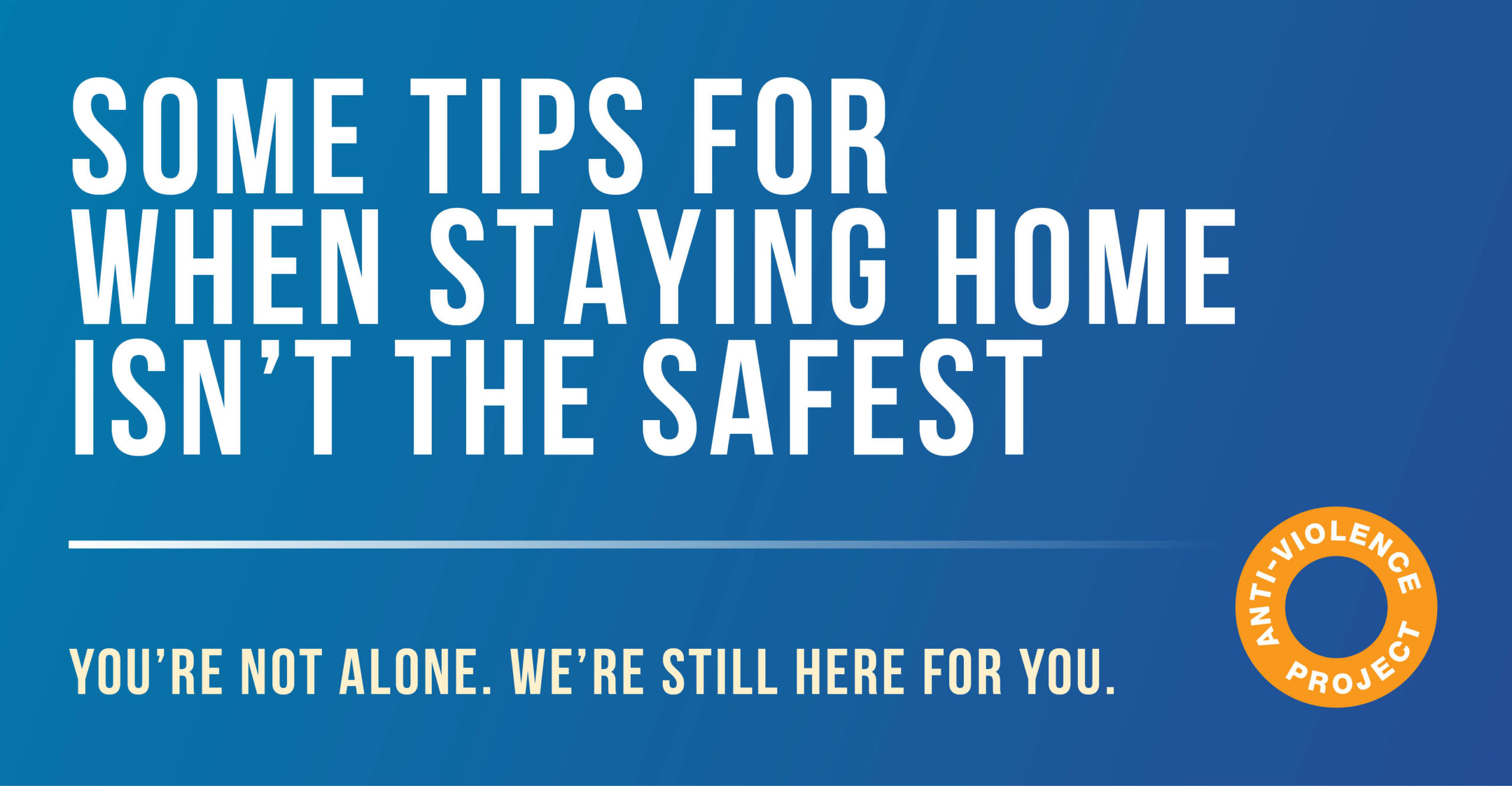
While being at home is best practice to avoid the spread of this virus, for some it may carry other risks. Many survivors are navigating a difficult reality: staying home to keep themselves and their community safe may keep them isolated with the person(s) causing them harm. This could be a partner, a roommate, or a family member.
If you’re unsafe, try to consider what your options are and remember AVP is here to help with navigating available resources.
Call AVP’s 24/7 hotline 212-714-1141, other hotlines, or contact service providers from a separate room.
-
Going to the bathroom can provide an added layer of privacy.
-
If you are on the phone and unattended, you can run the shower or faucet to make some noise during the call if you need to and feel comfortable doing so.
-
If you have private access to the internet, you can submit an online report form to us and someone will reach back out to you via email within the first 24-48 hours.
If going outside is accessible, social distancing still permits walks, while maintaining a physical distance of 6 feet from other people.
-
Going outside can give you a break from a tense situation,
-
It can also remove you from and/or deescalate an unsafe situation or interaction.
-
Take this time to ground yourself, call a social support, reach out to a hotline, or have a counseling session.
-
You can also use this time to use safety apps such such as Circle of 6 and/or grounding apps such as Calm.
Identify your Pod, your network of people in your building or digital community, for continued support.
-
Create a code word/sentence with people in your support network to indicate that you need an immediate interruption or immediate help.
-
Discuss with your support network what you would like that help to look like if you use the code word/sentence (i.e. deescalation, calling a specific individual, calling 911 etc.)
-
Create scheduled check-ins with people in your support network.
Hide some of your resources in safe places & create a plan:
-
Stash a portion of your medication, money, drugs, or food that you can take with you if you leave, or can access on your own time.
-
Keep your ID on you as much as possible.
-
Create a go-bag of essentials including your medication, money, phone charger, food, drugs, and IDs.
-
Think about the easiest and safest routes for you to get out of your home quickly.
Learn more about safer drug use and harm reduction here.
We understand not all of these tips will work for, or apply to, everyone. Ultimately, AVP believes survivors know what they need, and we trust you to use the strategies and tools that work best for you. Please remember that you don’t have to go it alone, and we are here for you, to listen, to create a personalized safety plan, or for other support at 212-714-1141.
